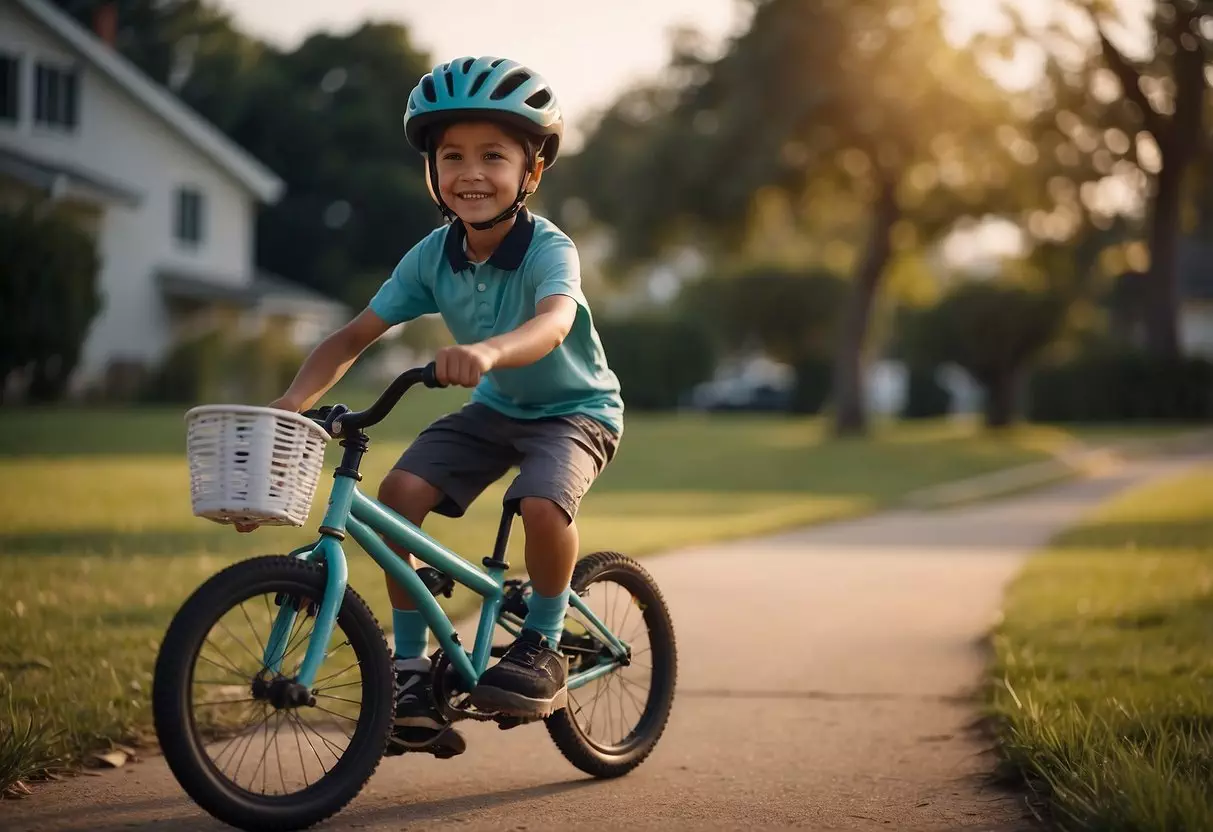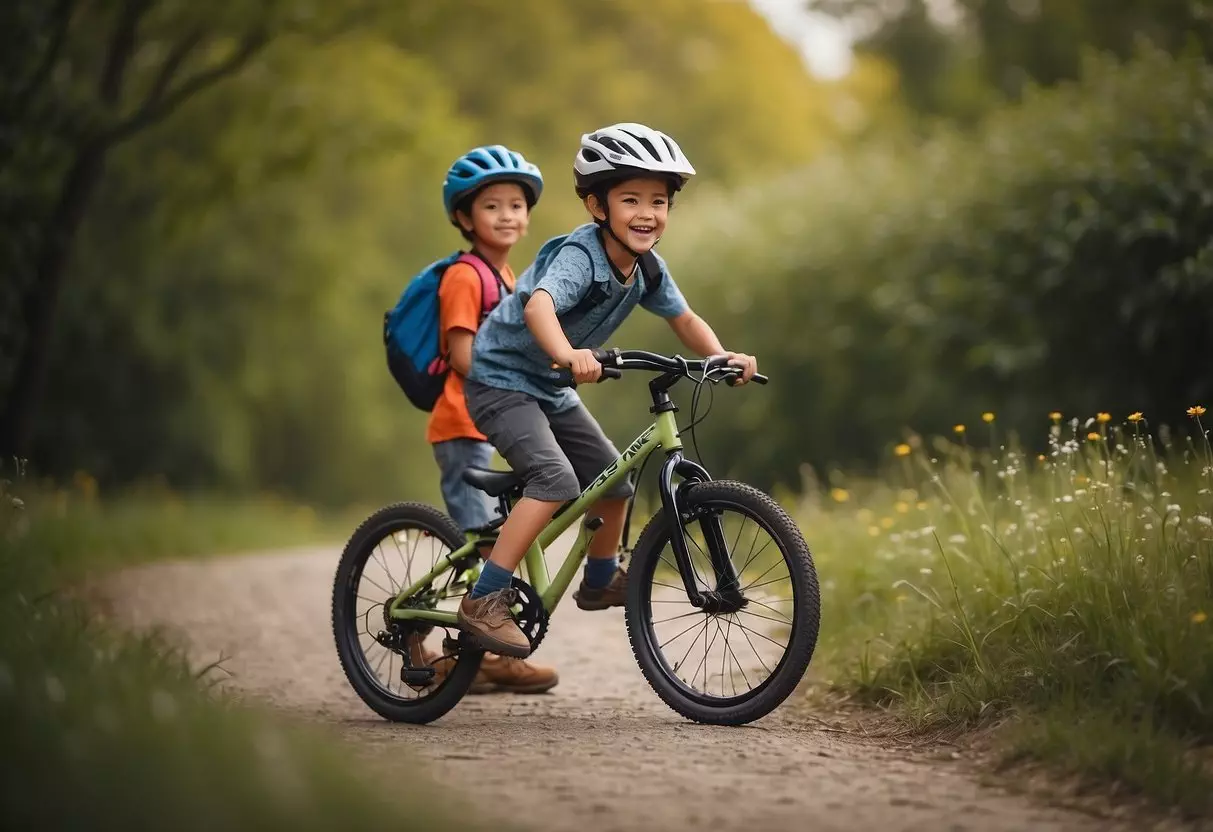What Should a 10 Year Old Be Able to Do? Key Skills and Milestones
When your child turns 10, it’s an exciting time for both of you as they hit various developmental milestones. At this age, kids start to show more independence and confidence in their abilities. By age 10, they should be able to complete tasks such as doing their homework, taking on simple household chores, and managing their personal hygiene.

A 10-year-old’s social and cognitive skills also improve significantly. They should be able to form deeper friendships, solve problems more effectively, and understand the consequences of their actions. It’s important for them to know important contact information, like your phone number and email address, which you can teach them through fun ways like songs or games.
Encouraging your child to build these skills not only helps with their current development but also sets the foundation for their future success. Remember, each child develops at their own pace, so support and guide them as they grow into their newfound independence. For more detailed insights on what to expect, you can check out articles from SheKnows and Verywell Family.
Table of Contents
Physical and Cognitive Development

By the age of 10, children experience significant growth in their physical abilities and cognitive skills, making strides in motor coordination, academic abilities, and beginning to navigate the early stages of puberty.
Gross and Fine Motor Skills
At 10 years old, your child will likely have improved coordination. They can perform complex physical activities such as running, jumping, and participating in sports. These gross motor skills help in activities like soccer, basketball, and gymnastics.
Fine motor skills also develop significantly. Your child may now write neatly, handle small objects, and complete tasks requiring dexterity, such as tying their shoes and using scissors.
Engaging in activities like drawing, building models, and playing musical instruments can further hone these skills, enhancing both their hand-eye coordination and creativity.
Cognitive Skills and Academic Abilities
Cognitive development at this age includes better problem-solving and critical thinking skills. Your child starts tackling more complicated math problems, understands abstract concepts in subjects like science and history, and enhances reading comprehension.
They now think logically and can plan ahead. Academic abilities strengthen as they improve in writing and reading, which helps them excel in school. Encourage them to read a variety of books and get involved in educational activities to support this growth.
Navigating Through Puberty
At 10, some children begin showing early signs of puberty. Girls may develop breast buds and start noticing changes in their body shape and physical appearance. Boys might experience a growth spurt and changes in muscle mass.
This period can bring about self-consciousness and body image concerns. It’s essential to provide a supportive environment where they can ask questions and express their feelings. Keep communication open about the changes they are experiencing to make this transition smoother.
Navigating through these developments can be challenging, yet understanding and support from parents make a world of difference.
Emotional and Social Growth
At age 10, children start to understand their emotions better and develop empathy. They also build stronger friendships and learn how to handle peer pressure and bullying.
Understanding Emotions and Developing Empathy
At this age, children begin to recognize and label their emotions more accurately. They might say they feel “frustrated” instead of just “mad.” This increased awareness helps them manage their feelings better.
Children also start to show more empathy. They can put themselves in others’ shoes and understand how someone else might feel in different situations. This skill is important for developing strong social bonds and resolving conflicts.
You can support this growth by talking about feelings openly at home. Encourage your child to express their emotions and discuss how various situations make them feel. This helps build emotional intelligence, which is crucial for forming healthy relationships.
Building Friendships and Social Skills
Friendships become more significant at this stage. Ten-year-olds often form close bonds with peers and spend more time with friends. These relationships help them practice social skills like sharing, cooperation, and conflict resolution.
Children this age also start to understand the importance of social norms. They become more aware of how their actions affect others and learn to navigate social situations more smoothly.
You can help your child by setting up playdates and encouraging participation in group activities. Praise positive social behaviors, such as kindness and cooperation. This reinforcement can boost their self-esteem and help them feel more confident in social settings.
Handling Peer Pressure and Bullying
As children grow older, they may face peer pressure and bullying. Peer pressure can come in many forms, from urging them to join in risky behaviors to feeling the need to fit in with certain groups. Teaching your child to stand up for themselves is key.
Explain the importance of making their own choices and not giving in to negative influences. Role-playing different scenarios can help them practice responses to peer pressure.
Bullying is another challenge that 10-year-olds might encounter. It’s essential to teach your child how to recognize bullying and encourage them to seek help from a trusted adult.
Discuss the signs of bullying and promote empathy by explaining how bullying can hurt others. Encourage open communication, so they feel comfortable talking to you about any issues they face.
Practical Life Skills and Responsibilities

By the age of 10, children should start taking on more responsibility around the house. This includes managing their daily hygiene, contributing to household chores, and understanding basic money management principles.
Daily Self-Care and Hygiene
At 10 years old, children should be responsible for their own basic hygiene. This includes brushing their teeth twice a day, taking regular showers, and ensuring their clothes are clean. It’s essential that kids develop these habits early on because they promote independence and a sense of responsibility.
You can encourage your child to make a checklist for their daily hygiene routine. This can include brushing their hair, washing their hands before meals, and using deodorant if necessary. It’s important for them to understand the health benefits of keeping themselves clean and presentable.
Chores and Household Contributions
Children at this age can handle a variety of household chores. These can range from simple tasks like making their bed and setting the table to more complex responsibilities like vacuuming and doing dishes. Teaching kids to help around the house fosters a sense of responsibility and teamwork.
Creating a chore chart can be helpful. It not only keeps tasks organized but also lets children see the contributions they are making to the household. Assign age-appropriate tasks like walking the dog, folding laundry, or taking out the trash.
Money Management and Saving
Teaching children the basics of money management and saving is crucial by the time they are 10 years old. Start by giving them a small allowance and encouraging them to save a portion of it. This can help them understand the value of money and the importance of saving for future needs or desires.
You can also introduce them to simple budgeting. For example, if they want to buy a toy, help them plan how much to save each week. This practice helps build financial literacy early on, preparing them for more complex financial decisions in the future.
Safety, Health, and Well-being

It’s important to ensure that ten-year-olds are equipped with the skills to stay safe, adopt healthy habits, and manage stress.
Personal Safety and Risk Assessment
At age ten, kids should know basic safety rules. They should memorize their home address and important phone numbers. Teaching them about road safety and how to identify potential hazards is crucial.
Encourage them to look both ways before crossing streets and to avoid talking to strangers. They should also understand the basics of internet safety, such as not sharing personal information online.
First aid skills can be beneficial. Learning how to treat minor cuts and scrapes helps them deal with small accidents. Swimming lessons are also valuable, as they provide both enjoyment and a critical life skill to prevent drowning risks.
Health Habits and Physical Fitness
Good health habits are crucial at this age. Encourage daily physical activity, aiming for at least 60 minutes of exercise. This could be through sports, biking, or simply playing outside. Physical fitness helps with their growth and keeps them energetic.
Healthy eating is another key aspect. Teach them to choose fruits, vegetables, and whole grains over sugary snacks. A balanced diet supports their physical and cognitive development.
Regular sleep is vital too. Kids should get around 9-11 hours of sleep per night. Proper rest helps them stay focused in school and improves overall well-being.
Coping with Stress and Anxiety
Learning how to handle stress is essential. Kids might feel pressure from school or social situations. Teach them relaxation techniques like deep breathing or mindfulness to help them calm down.
Encourage open communication so they feel comfortable sharing their feelings. Support from trusted adults can make a big difference in their ability to cope with anxiety.
Promote activities that help reduce stress. This could include hobbies like reading, drawing, or playing musical instruments. Physical activities like swimming or playing outside can also be a great way to manage stress and keep a positive outlook.
By focusing on personal safety, health habits, and stress management, you can help ensure your child’s well-being and prepare them for their future. For detailed tips on parenting tweens, refer to these parenting tips for tweens.
